
Politics
18:04, 09-Mar-2018
Things to know about annual work report of China's top judiciary
CGTN
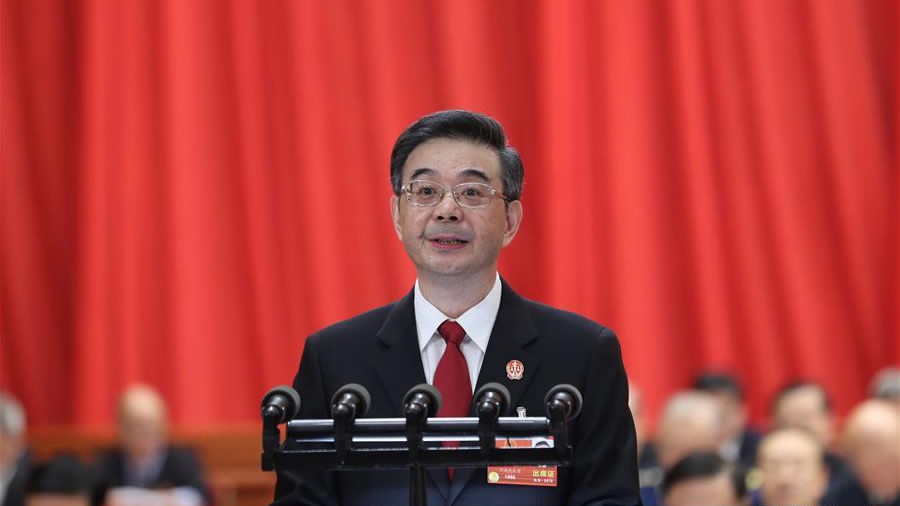
The head of China's Supreme People's Court Zhou Qiang delivered the annual work report to nearly 2,980 lawmakers on Friday.
The report reviewed the achievements of the judicial system over the past five years including anti-corruption campaign, curbing domestic violence, improving human right and international judicial collaboration.
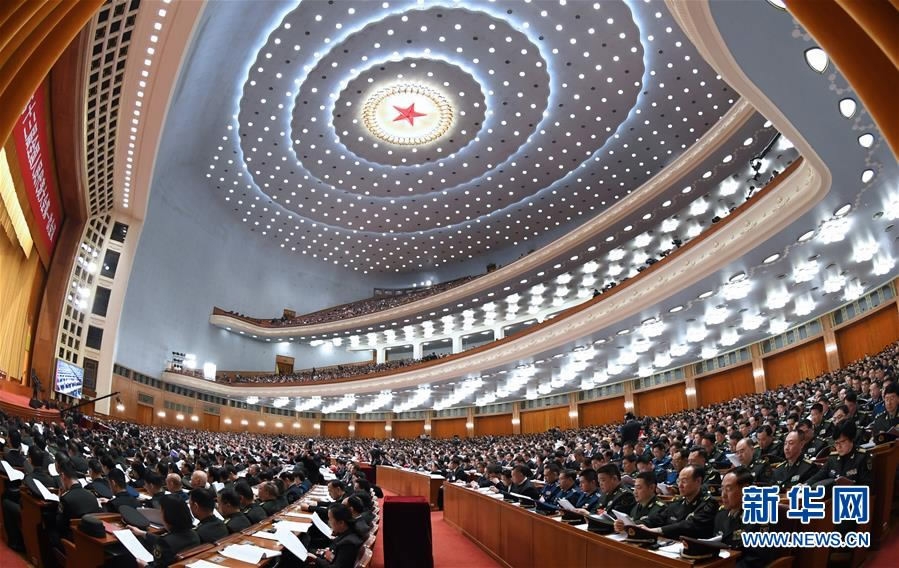
The head of the Supreme People's Court Zhou Qiang delivered the annual work report to China's lawmakers at the first session of National People's Congress on Friday. /Xinhua Photo
The head of the Supreme People's Court Zhou Qiang delivered the annual work report to China's lawmakers at the first session of National People's Congress on Friday. /Xinhua Photo
Highlights of judicial work (2013-2017)
1. Five years: 101 senior officials sentenced for corruption
Chinese courts handed down sentences in 195,000 cases related to corruption during 2013-17, Chief Justice Zhou said. About 101 government officials at above ministerial levels stood on trial for taking bribe and abuse of power, while another 810 officials at the director-general level went on trial.
Zhou also noted that 13,000 people were convicted for offering bribes.
The report also highlighted Yang Xiuzhu's case. Yang, former vice mayor of Wenzhou city, was the number one on the list of China's top 100 fugitives on an Interpol Red Notice. She returned to China in November 2016 after fleeing to the US in 2003. She was sentenced to eight years in prison for embezzlement and taking bribes in last October.
2. Five years: Amnesty for over 31,000
A total of 31,527 prisoners were granted amnesty across China in the past five years, as part of the efforts to improve human rights in judicial practices, the report read.
Death penalty verdicts were strictly reviewed to make sure that such punishment was only applied to a minimal number of criminals for extremely severe offenses, it added.
Zhou also mentioned that courts at all levels reopened and overturned 6,747 cases, in which 78 victims or their families were compensated.
3. Say 'NO' to domestic violence and human trafficking
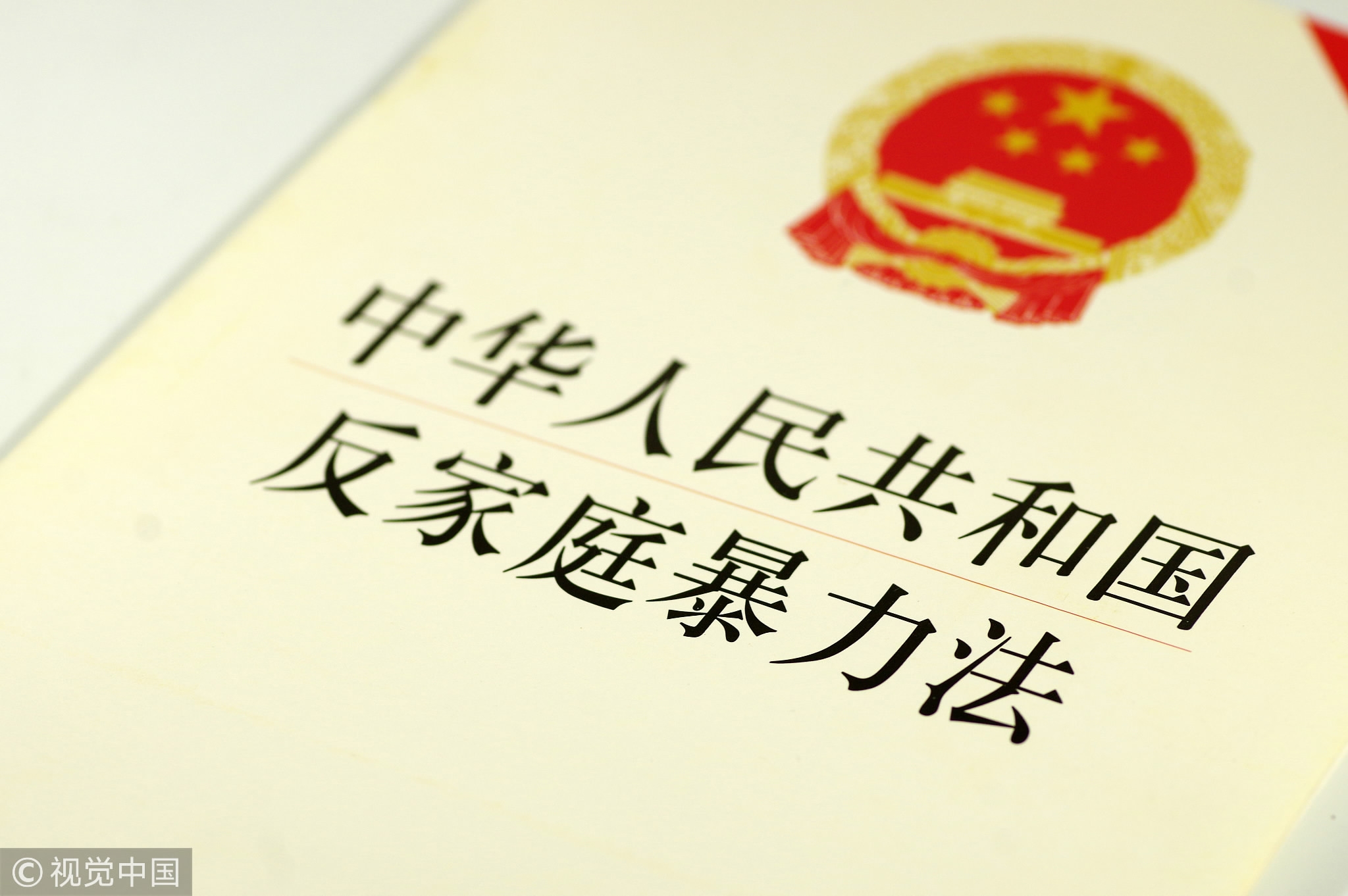
China introduced its first anti-domestic violence law in 2015. /VCG Photo
China introduced its first anti-domestic violence law in 2015. /VCG Photo
Zhou said the judicial system has strengthened law and regulation to protect women and children from domestic violence, abuse, and sexual assault.
-- First anti-domestic violence law was adopted in 2015
-- 2,154 protection orders were issued against domestic violence
-- 131,000 cases were concluded involving domestic violence and abuse
-- 4,685 cases were dealt related to human trafficking
4. International collaboration
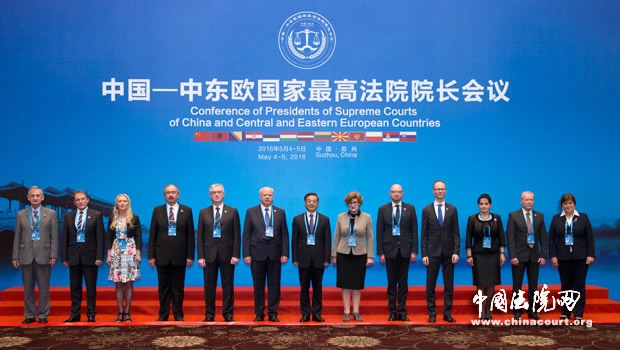
The Conference of Presidents of Supreme Court of China and Central and Eastern European Countries was held in Suzhou City in May 2016. /Photo courtesy of Chinacourt.org
The Conference of Presidents of Supreme Court of China and Central and Eastern European Countries was held in Suzhou City in May 2016. /Photo courtesy of Chinacourt.org
The report also noted the progress in international judicial cooperation. China held international forums with judges from Association of Southeast Asian Nations countries, Central and Eastern European countries, and other countries and regions. During 2013-17, over 15,000 cases were concluded under international cooperation framework.
The Supreme People's Court also established an international commercial chamber dealing with legal issues and disputes in countries along with the Belt and Road Initiative.

Things to look out in 2018
Speaking of the work in the coming year, Zhou said the Supreme People's Court would firmly safeguard the authority of the state constitution. He said the judicial system would launch a large-scale education campaign of Xi Jinping Thought on Socialism with Chinese Characteristics for a New Era, and the spirit of the 19th Communist Party of China National Congress.
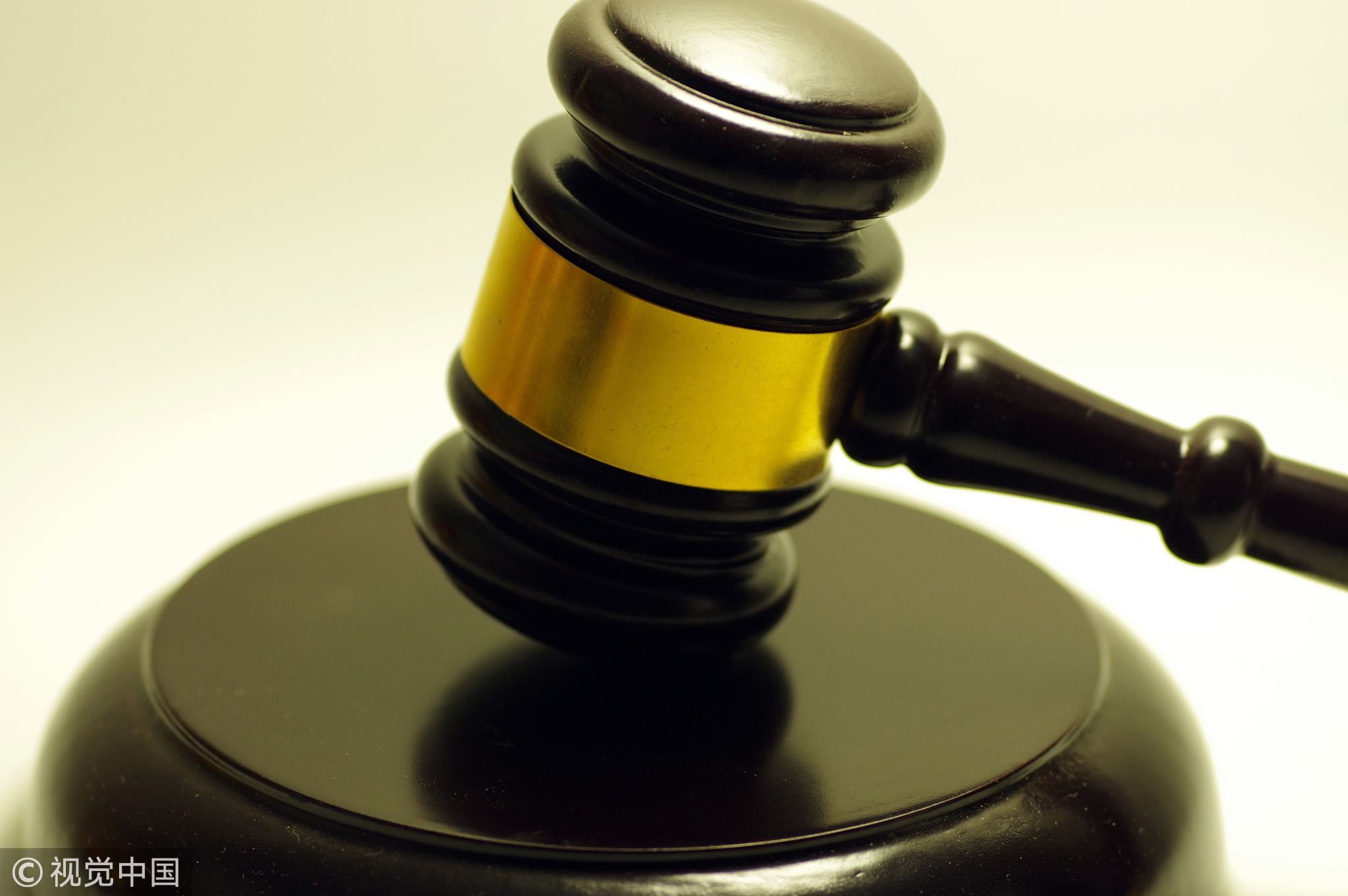
/VCG Photo
/VCG Photo
Additional points:
-- To step up crackdown upon infiltrative, subversive and separatist activities, terrorism, organized crimes, pornography, gambling, drugs, human trafficking, pyramid schemes, illegal fundraising, and graft.
-- To create a legal environment for economic development and to enhance protection of property rights.
-- To provide better judicial service for ordinary people, respect lawyers' right to exercise their duties, and make sure the execution of court orders.
-- To proceed with judicial reforms and to increase transparency of the system.
-- To discipline judges and court staff and to maintain zero tolerance for corruption.
1km

SITEMAP
Copyright © 2018 CGTN. Beijing ICP prepared NO.16065310-3
Copyright © 2018 CGTN. Beijing ICP prepared NO.16065310-3